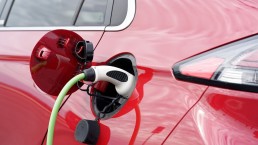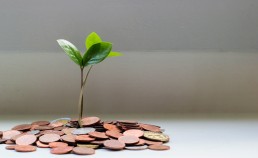Why Coupling your Business Plan With Your Decarbonisation Plan is More Effective Than Drafting Them Separately?
There are incredible synergies with aligning purpose and ambition in the decarbonisation sense to the Mission, Vision and Values of the business. Thinking of them in unison will intertwine the business plan (revenue generation) with the decarbonisation plan and allow the business to set short and long-term business goals and decarbonisation metrics. As with most strategy plans, the goals/metrics should be reviewed bi-annually to correct any deviations from the plan.
In the government highway infrastructure sector, the business is aligned to decarbonisation 2050 as legislated by the Paris Agreement 2015 with 2030, 2040 and 2050 time horizons to achieve scientifically based metrics. Collaboration with delivery partners is crucial in reaching these targets. Targets for the delivery partners are aligned to ensuring achieving the business’s Scope 1,2 and 3 targets.
Innovation and collaboration are driving decarbonised materials, electric fleets and whole life design thinking. In other words, it directs a circular economy. Proven technologies and close ties to the government encourage policymakers to be bolder with the legislation they advise politicians to implement. With proven technologies being implemented, financiers are more willing to provide financing.
These innovations provide people who live around major highways with cleaner air and reduced pollution. Less pollution means fewer lung inflictions which ultimately means a healthier society and reduced pressure on the NHS.

About the author

Andrew Wilson
Andrew is a seasoned strategy and transformation consultant with experience across Africa and the UK.
His background is in capital projects, energy, mining and sustainability. He has a passion for the crossover between productivity, growth and sustainability, complemented by his qualification from Cambridge University in Business and Climate Change: Towards Net Zero Emissions.
Andrew has built mines, towns, roads and power plants, and he aims to keep building using a sustainability lens.
Is Degrowth and Decoupling The Answer to Sustainability?
There is little evidence that greenhouse gas emissions can be decoupled from economic growth in absolute terms from an environmental perspective. Since economic growth is one of the main drivers for rising emissions (and increasing depletion of non-renewable resources), it seems evident that a transition to degrowth would make an essential contribution to climate change mitigation, and hence to our moral obligation to preserve future generations’ rights to basic needs fulfilment.
GDP ultimately cannot be decoupled from material and energy use growth. It is, therefore, misleading to develop a growth-oriented policy around the expectation that decoupling is possible. We also note that GDP is increasingly seen as a poor substitution for societal wellbeing. GDP growth is, therefore, a questionable societal goal. Society can sustainably improve wellbeing, including the wellbeing of its natural assets, but only by discarding GDP growth as the goal favouring more comprehensive measures of societal wellbeing.
While relative decoupling has been observed in multiple countries, absolute decoupling remains elusive. Studies observe that no country has achieved absolute decoupling during the past 50 years. Another study reports that population growth and increases in affluence are overwhelming efficiency improvements at the global scale. There is no evidence for absolute reductions in environmental impacts and little evidence to date, even for significant relative decoupling.
Technological advances can lead to absolute decoupling for specific types of impact. For example, it is possible to envisage a scenario in which GDP growth is decoupled from using fossil fuels and related CO2 emissions by switching to 100% renewable energy.
References:
Plos one. Is Decoupling GDP Growth from Environmental Impact Possible?

About the author

Andrew Wilson
Andrew is a seasoned strategy and transformation consultant with experience across Africa and the UK.
His background is in capital projects, energy, mining and sustainability. He has a passion for the crossover between productivity, growth and sustainability, complemented by his qualification from Cambridge University in Business and Climate Change: Towards Net Zero Emissions.
Andrew has built mines, towns, roads and power plants, and he aims to keep building using a sustainability lens.







